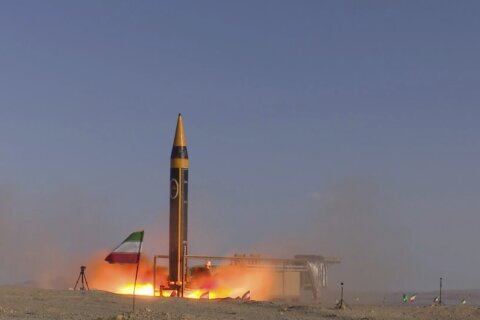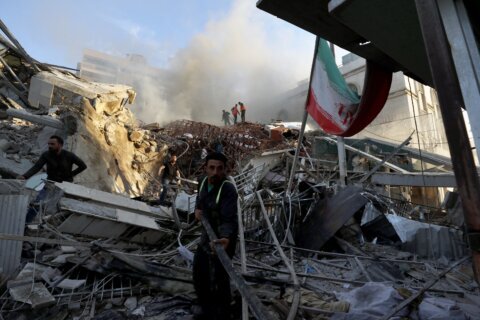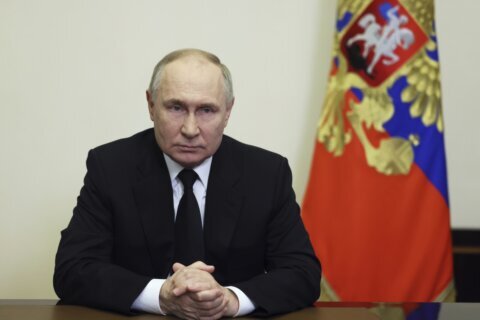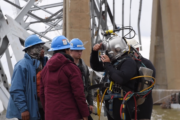WASHINGTON – On Feb. 12, North Korean state media announced the country had conducted an underground nuclear test.
In mid-March, a four-minute video laced with images of North Korean military weapons firing nuclear missiles at American targets, including Washington, surfaced on the Internet. The video was part of a stream of rants and threats from President Kim Jong Un that precipitated a series of U.S. military weapons shifts.
The flurry of bluster and belligerence emerged from Kim in resistance to U.S. demands that North Korea stop its pursuit of nuclear weapons. The U.S. military began actively planning for the possibility that North Korea might try to make good on its threats.
Then, in mid-June, North Korea inexplicably asked the U.S. to sit down and work things out.
Joint Chiefs Chairman Gen. Martin Dempsey tells WTOP in an exclusive interview that he’s not surprised and he’s keeping a wary eye on North Korea.
“We’re now in a period where the provocation seems to have subsided a bit, but I’m under no illusions,” he says.
He’s seen it all before.
“They have a history of entering into cycles of provocation. In response, we’ve had to adjust some of positioning of resources around the globe and increase our states of readiness and alert posture and we’ve done that,” says Dempsey.
But this time was worse than previous incidents, he says.
“I think one of the differences in the newest leadership of Kim Jong Un in North Korea is that the periods of calm in between peaks of provocation have shortened. So he has been more provocative is another way to describe it,” Dempsey says.
And even in view of North Korea’s polite overtures, he’s not let letting down his guard.
“In my personal judgment, we should never accede to (North) Korea’s wishes without something in return, because history has shown that ‘good will’ is not part of their vocabulary,” Dempsey says.
Dempsey is not alone in his suspicion about North Korea’s historical, mercurial behavior.
“I’ve seen this cyclical provocation for 34 years, from the grandfather, to the father and now the son,” says Lt. Gen. Francis Wiercinski, commanding general of U.S. Army, Pacific (USARPAC).
He says North Korea’s latest threats in May were different.
“It’s nothing that I would not have expected; however, I would think that this time it was a tenuous situation,” he says.
Dempsey and Wiercinski agree that the rhetoric and risks increase each time the cycle occurs.
U.S. Ambassador Joe DeTrani, former director of the National Counterproliferation Center, says North Korea knows its limits but tries to push them.
“North Korea should not be making threats, because we know North Korea is not suicidal,” DeTrani says.
As for the most recent offers to talk with the U.S., DeTrani believes Kim was given a stern lecture.
“China, their one ally, is telling them, ‘That … is … enough. Cease and desist,'” he says.
North Korea has shown the world it can put a rocket in space and is testing nuclear weapons. If there is a new round of threats, the Pentagon says U.S. forces in the Pacific will be in position to defend against any attack from North Korea on the Korean peninsula, against U.S. interests or against the U.S. mainland.
“My job is to keep the forces that are allocated to the defense of Republic of Korea allies at the proper readiness levels and we’re doing that,” says Dempsey.
That readiness was tested on Tuesday after South Korea government websites were shut down by a cyberattack. Messages were posted on hacked websites lauding North Korea and its leader.
Related Story:
Follow @WTOP on Twitter.







